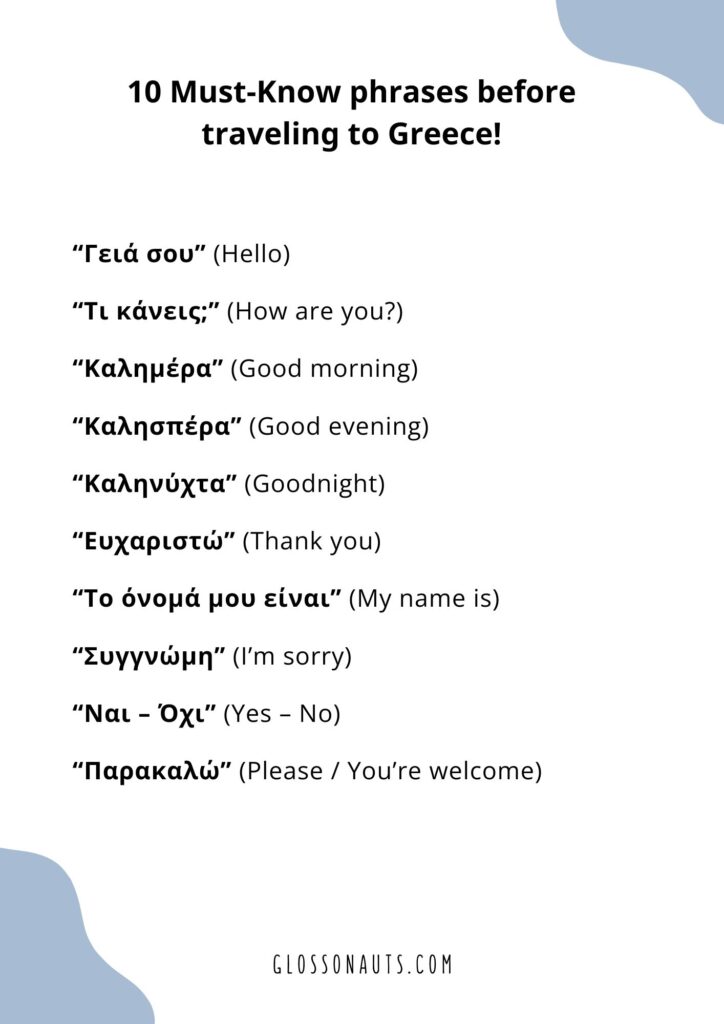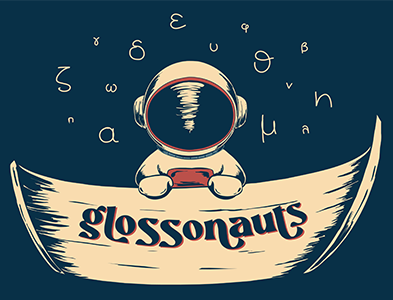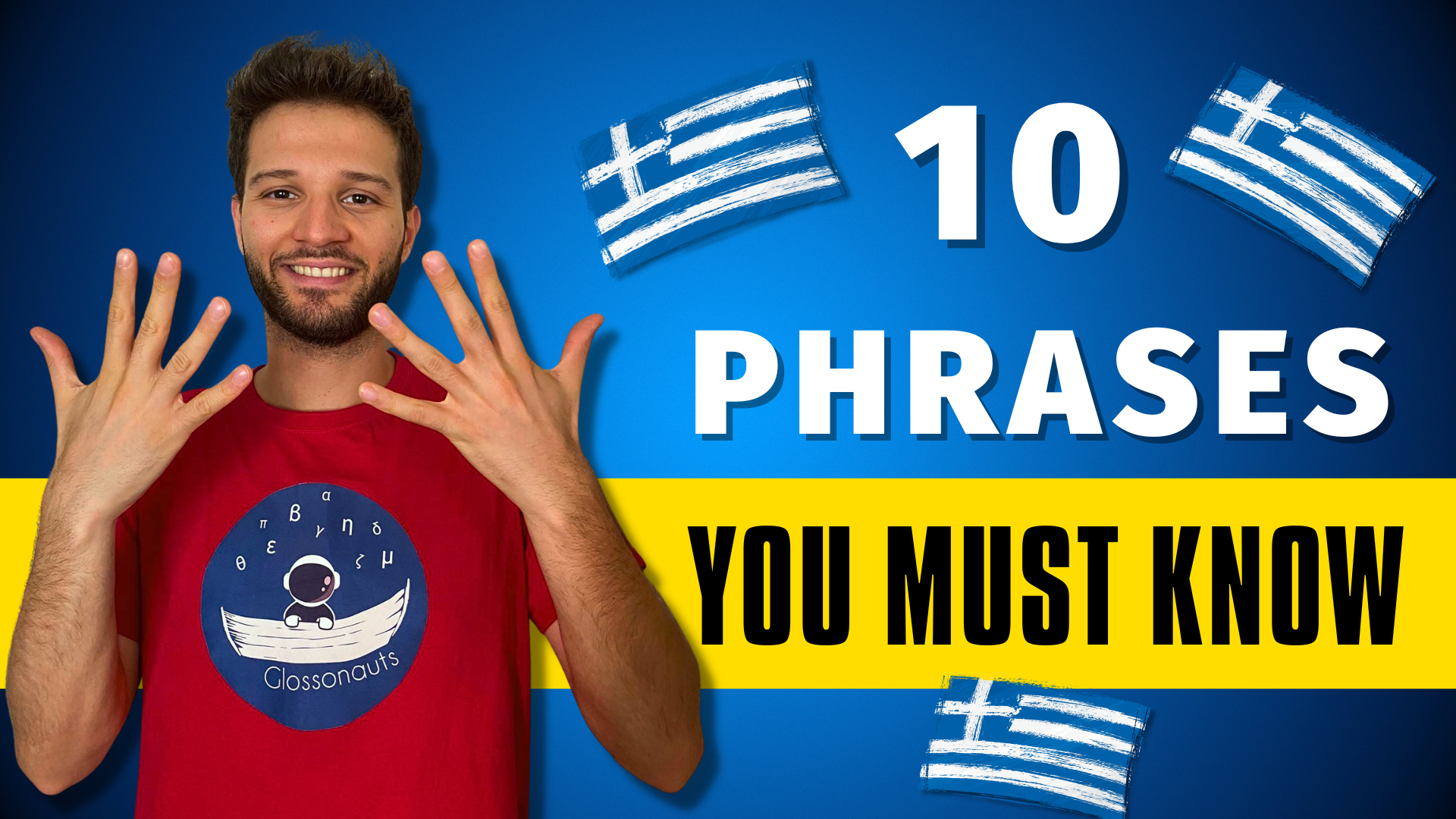Welcome to Glossonauts, the viral online community that teaches you authentic Greek.
If you are a beginner but have already booked your flight to Greece, this post will boost your tourist experience. In other words, if you use these 10 phrases in the right context you could easily get a free meal, make new friends, or even enjoy a free drink!
Let’s get started with some basics!
“Hello” (Γειά σου)
This is the go-to phrase for greeting someone. Imagine running into the mythical Hercules – you can confidently say, “Γειά σου Ηρακλή!” (Hello Hercules!).
“How are you” (Τι κάνεις)
This is the number one phrase to start a conversation. Whether you’re catching up with a friend or checking in on someone, “Τι κάνεις;” (How are you?) is indispensable.
“Good morning” (Καλημέρα)
Perfect for those early morning greetings, whether you’re enjoying your coffee or engaging in small talk with a neighbor.
“Good evening” (Καλησπέρα)
Use this in the late afternoon or evening to greet someone warmly. It’s especially handy for more formal interactions or simply acknowledging someone as the day winds down.
“Goodnight” (Καληνύχτα)
Typically used before going to sleep, “Καληνύχτα” (Goodnight) is also a polite way to end an evening.
“Thank you” (Ευχαριστώ)
Gratitude goes a long way. In Greece, showing appreciation can quickly make you beloved. Always remember to say, “Ευχαριστώ πολύ” (Thank you very much).
“My name is” (Το όνομά μου είναι)
Introducing yourself is a fundamental part of any language. Practice saying, “Το όνομά μου είναι Κωνσταντίνος” (My name is Konstantinos) and asking “Πώς σε λένε;” (What’s your name?).
“I’m sorry” (Συγγνώμη)
Whether you’re late or need to catch someone’s attention, “Συγγνώμη” (I’m sorry) is useful in many scenarios.
“Yes – No” (Ναι – Όχι)
These are crucial for affirming or denying something. Simple yet powerful, “Ναι” (Yes) and “Όχι” (No) will often be your go-to responses.
“Please / You’re welcome” (Παρακαλώ)
Politeness is key. Use “Παρακαλώ” (Please) when asking for something and “Παρακαλώ” (You’re welcome) when someone thanks you.
Here are the 10 expressions in one picture!

Ok enough with the theory, now try watching this video. Focus on pronunciation and understanding the cultural context:
Now, if you want to get 100% of this you can:
- study the transcription of the video side by side with the translation
- practice with interactive activities
- practice the important vocabulary with flashcards
- explore the grammar island (Present tense in Greek)
We prepared all these for you! You can access the mini-lesson at the button below. The resources are free! Ok if you insist so much, you can support us with an optional donation on the platform!
Ta leme,
Konstantinos






